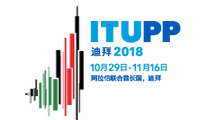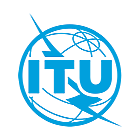It is a great pleasure for me, on behalf of the Universal Postal Union, to address the 2018 ITU Plenipotentiary Conference. Thank you, Secretary General, for your kind invitation.
The International Telecommunication Union is the oldest international organization, having been established in 1865. The UPU followed less than 10 years later, in 1874.
It is no coincidence that world leaders prioritized these two organizations as the pioneers for international cooperation. They just followed the patterns of human needs: first, for people to know one another they must communicate; and, after that, there is the need to exchange goods, gifts and other physical items. That is what ITU and the UPU facilitate.
Since that time, the Post and telecommunications have always played – and continue to play – complementary roles. All over the world, the establishment of telecommunication services has taken place together with that of Posts. The ministers I see at this conference are the same ones who attend the UPU’s events. This means that most governments continue to see the correlation between the Post and telecommunication services.
With the rapid advancement of telecommunications and digital space over the years, the Post at some point worried that its relevance was dying, and that it was being replaced by the faster, more versatile communications offered by the Internet. Indeed, the business of the Post’s main service – the letter – started to decline and has continued to do so. Social communication has moved almost wholly to the electronic platform.
Moreover, the advancement in telecommunications has given birth to electronic transactions. Online trading is now the fastest-growing component of local and international business in all parts of the world. This phenomenon has not only brought back the link between the Post and telecommunications, but has actually strengthened it. More than any time before, the two services are inseparable.
The two biggest concerns of customers shopping on the Internet are, firstly, whether their online payment is secure and, secondly, whether they will receive their correct purchases in good time. The first concern is resolved by telecommunications, while the Post addresses the second one.
ITU and the UPU are involved in many collaborative activities, especially those geared towards the attainment of the United Nations Sustainable Development Goals. As partners, we are working together in a joint working group on financial services to address some of the key challenges in the digital financial space, such as security, interoperability and consumer protection.
The UPU is also involved with ITU and other partners in the Financial Inclusion Global Initiative. This is a working group which delivers research, technical tools and policy recommendations to advance financial inclusion, leveraging digital technologies.
To support the e-commerce ecosystem, in which the Post is a key player, the UPU is running a major project on operational readiness for e-commerce among its members. This is aimed at ensuring that the entire postal global network has capacity to play in the e-commerce sphere. With this project, we are addressing issues of key concern to ITU like cybersecurity and connectivity reliability.
Your Excellencies, the current UPU strategy is anchored on three pillars: innovation, integration and inclusion. The pillars are very much aligned to ITU’s five strategic goals. The UPU strategic pillars are applied in all three dimensions of the postal business: physical, financial and electronic.
The relationship between and the Post and telecommunications, and by extension the UPU and ITU, will continue as long as communication remains the central component for human interaction. This is because, to complete the cycle of human demand, the virtual must facilitate access to the physical.
To conclude my remarks, I wish to call upon governments to invest in the digital transformation of the postal sector in order to increase the social and economic inclusion of all citizens: even the most robust telecommunication network will not deliver value to citizens if other crucial physical infrastructure is not in place. The postal infrastructure is key to achieving a sustainable digital economy for all.
The Post has the largest physical network, and its more than 600,000 global outlets serve all corners of the world, including remote and difficult-to-access locations. It is the second largest financial services provider after commercial banks. These are all important components to facilitate public service in all countries of the world. With digitalization of our postal outlets, we will move faster towards attaining most of the SDGs involving inclusion.
Finally, I wish to point out here that the UPU and ITU benchmark with each other in many other areas, including governance and administrative matters. Recently, the UPU carried out a major reform which was supported by all member countries. I would like to thank the ministers present here for giving their backing to the changes. With the reforms, we are now seeing greater efficiency in our work, and have achieved equitable representation of all regions in the Union. We involved ITU in this reform process, and I am sure your organization has also benefited from our experience.
Your Excellencies, thank you very much for your attention. I wish you all a successful 2018 Plenipotentiary Conference.






